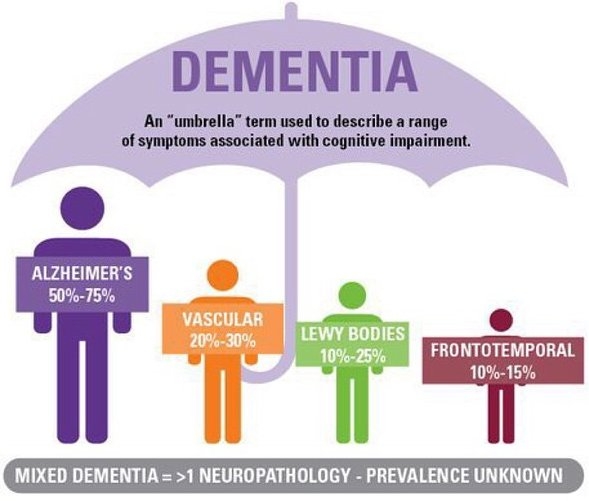When a loved one gets dementia, it can be a scary time for them, as well as the surrounding family. They may become quite agitated regarding their changing state. This can be exasperated by their family members’ reactions to them. And the family is also confused as to how much the person actually comprehends at all.
According to
Alberta Health Services, the number of people living with dementia in Alberta is projected to increase between now and 2043
[1]. This means now more than ever, families are looking to the medical field to give them advice on how to help them cope with dementia. And worse yet, when a patient does not have much support from the family, it is up to the government to find them a suitable long term health care solution.

According to the
Dementia and Continuing Care Forum held in May of 2014, in 2008, around 40 000 adults had dementia. It has cost Albertans $1.2 billion in funds for dementia patients’ care according to a 2008 estimate. These numbers are projected to increase in the next 40 years.
At
TheFamilyCaregiver.com there is practical information for Albertans regarding Dementia. The site includes more facts about the disease, as well as resources to help families cope. The topics include caregiving help as well as the latest articles written regarding Dementia that directly affect Albertans.
For patients that are in the early stages of Dementia, they might want to retain a maximum amount of independence. Families and loved ones might not feel comfortable though leaving the person alone at all, even for short periods of time. However, during the period where the brain is still sharp, these individuals will need a
level of monitoring. There must be someone present in the home to ensure that they do not forget to do vital tasks, such as turn off the oven.
One thing that some families might find comforting for seniors that still want to live in independent care until the stages progress, is a medical monitoring system. In Canada, this is available through companies such as
Philips Electronics Lifeline Devices. These devices can detect if the patient falls, and have ranges of use, from inside the home to on the go. This may be one way for a new patient who still has full mobility skills to be able to wander into different rooms than the carer without either of them worrying.

Dementia is a frightening disease, but there are so many medical resources available to Albertans. There will be life changes that occur in the life of the patient, even dramatic ones such as moving into a full time care facility. But patients in the very early stages can take an informed approach and make a plan for their later care. There may be some level of uncertainty, but there is hope that patients can access wonderful resources to direct them to medical research regarding the disease and quality care.

 According to the Dementia and Continuing Care Forum held in May of 2014, in 2008, around 40 000 adults had dementia. It has cost Albertans $1.2 billion in funds for dementia patients’ care according to a 2008 estimate. These numbers are projected to increase in the next 40 years.
According to the Dementia and Continuing Care Forum held in May of 2014, in 2008, around 40 000 adults had dementia. It has cost Albertans $1.2 billion in funds for dementia patients’ care according to a 2008 estimate. These numbers are projected to increase in the next 40 years.
 Dementia is a frightening disease, but there are so many medical resources available to Albertans. There will be life changes that occur in the life of the patient, even dramatic ones such as moving into a full time care facility. But patients in the very early stages can take an informed approach and make a plan for their later care. There may be some level of uncertainty, but there is hope that patients can access wonderful resources to direct them to medical research regarding the disease and quality care.
Dementia is a frightening disease, but there are so many medical resources available to Albertans. There will be life changes that occur in the life of the patient, even dramatic ones such as moving into a full time care facility. But patients in the very early stages can take an informed approach and make a plan for their later care. There may be some level of uncertainty, but there is hope that patients can access wonderful resources to direct them to medical research regarding the disease and quality care.